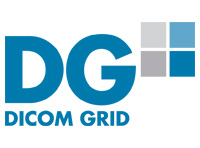 This is not going to all be about getting your books, or your socks, or even your new HD television faster. It is going to impact many industries -- including health care. And that impact has already started to happen. Zipline International, for example, is already delivering medical supplies by drone in Rwanda. They deliver directly to isolated clinics despite any intervening "challenging terrain and gaps in infrastructure." They plan to limit themselves to medical supplies, but not only in developing countries; they see rural areas in the U.S. as potential opportunities as well. Last fall they raised $25 million in Series B funding. Drones are also being considered for medical supply delivery in Guyana, Haiti, and the Philippines...
This is not going to all be about getting your books, or your socks, or even your new HD television faster. It is going to impact many industries -- including health care. And that impact has already started to happen. Zipline International, for example, is already delivering medical supplies by drone in Rwanda. They deliver directly to isolated clinics despite any intervening "challenging terrain and gaps in infrastructure." They plan to limit themselves to medical supplies, but not only in developing countries; they see rural areas in the U.S. as potential opportunities as well. Last fall they raised $25 million in Series B funding. Drones are also being considered for medical supply delivery in Guyana, Haiti, and the Philippines...
Haiti
See the following -
AHRQ Providing Support for OpenMRS
As the AHRQ report explains it, “PIH and the Regenstrief Institute in Indianapolis conceived of OpenMRS in 2005 as a flexible, open source EMR that would be capable of meeting the demand for high-quality health information in developing countries such as Rwanda and Kenya, where the two organizations were then working. Read More »
- Login to post comments
Bridges and Roads as Important to Public Health as Medicines - Lessons from Major Disasters
 Two seemingly unrelated national policy debates are afoot, and we can’t adequately address one unless we address the other. Health care reform has been the hottest topic. What to do about America’s aging infrastructure has been less animated but may be more pressing. Yet even as cracks in America’s health system and infrastructure expand, political divides between parties and within parties have stalled efforts to develop policies and implement solutions. Problematically, debates over health care reform and infrastructure projects remain separate...
Two seemingly unrelated national policy debates are afoot, and we can’t adequately address one unless we address the other. Health care reform has been the hottest topic. What to do about America’s aging infrastructure has been less animated but may be more pressing. Yet even as cracks in America’s health system and infrastructure expand, political divides between parties and within parties have stalled efforts to develop policies and implement solutions. Problematically, debates over health care reform and infrastructure projects remain separate...
- Login to post comments
Citizen Cartographers Fill The Gaps In Maps
...[M]aps are a vital resource, especially when deciding what infrastructure to build or in the event of a humanitarian crisis. Now teams of mappers are working to chart some of the most obscure corners of the developing world using OpenStreetMap (OSM), the citizen-mapping tool that today has over 1 million registered users.
- Login to post comments
Crisis Maps: Harnessing The Power Of Big Data To Deliver Humanitarian Assistance
Crisis-mapping technology has emerged in the past five years as a tool to help humanitarian organizations deliver assistance to victims of civil conflicts and natural disasters. Crisis-mapping platforms display eyewitness reports submitted via e-mail, text message, and social media. Read More »
- Login to post comments
Crowd-Sourced Maps May Help When Disasters Hit
A free online map of the world that is created by its users is helping developing nations become more resilient to disasters, the Open Source Convention in Portland, United States, heard last month (22-26 July). Read More »
- Login to post comments
DICOM Grid Powers Global Health IT Non-Profits In Their Mission To Improve Access To Radiology
 DICOM Grid, makers of the leading cloud-based, medical image management suite, today announced it is powering image exchange for three non-profit organizations – RAD-AID, Partners In Health, and thesecondopinion – in their mission to improve access to modern healthcare and best-in-class second opinion services for underserved communities worldwide. According to the World Health Organization (WHO), approximately 4 billion people are at risk for widespread losses and deaths that can be avoided or treated, if radiology were available...
DICOM Grid, makers of the leading cloud-based, medical image management suite, today announced it is powering image exchange for three non-profit organizations – RAD-AID, Partners In Health, and thesecondopinion – in their mission to improve access to modern healthcare and best-in-class second opinion services for underserved communities worldwide. According to the World Health Organization (WHO), approximately 4 billion people are at risk for widespread losses and deaths that can be avoided or treated, if radiology were available...
- Login to post comments
Disaster-Mapping Project Helps Spread Reports Of The Czech Floods
The Krizová mapa Česka, or Crisis Map Czech, an online disaster-mapping project created by a Czech television channel, has provided Czech citizens with up-to-date information about the flooding in the Czech Republic. Read More »
- Login to post comments
High-Quality Science Benefits All
Open access publishing can help researchers in the developing world to participate more actively in the scientific community. Alexander Brown from Springer shares his experience. Read More »
- Login to post comments
How a University's 3D-Printed Prosthetics Club Provides Devices for Amputees
 Last fall, one of the co-founders of Duke University eNable published an article describing our club’s beginnings and visions for the future. In the spring of 2016, we started out as six engineering students with a passion for innovation and design, supported by a small stipend from the Innovation Co-Lab and a grant from OSPRI (Open Source Pedagogy, Research and Innovation), a project supported by Red Hat. Since then we have established ourselves as a presence on campus, grown into a large interdisciplinary team, and connected with multiple recipients—including a young boy in Milot, Haiti. The resources offered through Duke and the sponsorship we've received allow us to continuously transform our ideas into things we can share with open source enthusiasts, makers, and dreamers alike...
Last fall, one of the co-founders of Duke University eNable published an article describing our club’s beginnings and visions for the future. In the spring of 2016, we started out as six engineering students with a passion for innovation and design, supported by a small stipend from the Innovation Co-Lab and a grant from OSPRI (Open Source Pedagogy, Research and Innovation), a project supported by Red Hat. Since then we have established ourselves as a presence on campus, grown into a large interdisciplinary team, and connected with multiple recipients—including a young boy in Milot, Haiti. The resources offered through Duke and the sponsorship we've received allow us to continuously transform our ideas into things we can share with open source enthusiasts, makers, and dreamers alike...
- Login to post comments
How AI, Twitter And Digital Volunteers Are Transforming Humanitarian Disaster Response
On 24 September a 7.7-magnitude earthquake struck south-west Pakistan, killing at least 300 people. The following day Patrick Meier at the [QCRI] received a call from the UN [OCHA] asking him to help deal with the digital fallout -- the thousands of tweets, photos and videos that were being posted on the web containing potentially valuable information about the disaster. Read More »
- Login to post comments
How Crisis Mapping Saved Lives in Haiti
The National Geographic Society has a long history of crisis mapping disasters. But what happened in Haiti on January 12, 2010 would forever change the very concept of a crisis map. Read More »
- Login to post comments
Rise of Drones for Medical Supply Delivery
- Login to post comments
Solar powered healthcare facilities in Haiti
The Solar Electric Light Fund (SELF), a Washington, D.C.-based nonprofit working to eliminate energy poverty through the use of solar power, today announced the successful installation of solar electric systems at 11 health care facilities and one hospital along the southwest coast of Haiti. Read More »
- Login to post comments
The EHR Debacle: Has Organized Medicine Failed Us?
 By now, it should be no secret that physicians in the United States, although largely receptive to the idea of electronic health records (EHRs), are widely dissatisfied with the current state of the art, and with the way that EHR adoption is being implemented.[1] Indeed, Congress[2] has shown continuing – but sometimes seemingly perfunctory – interest in the concerns of physicians and other health care providers, and I am at this point pessimistic about seeing any results of its efforts in the near future unless a more fundamental change is made in our approach. As Einstein noted, “We cannot solve our problems with the same thinking that created them.”
By now, it should be no secret that physicians in the United States, although largely receptive to the idea of electronic health records (EHRs), are widely dissatisfied with the current state of the art, and with the way that EHR adoption is being implemented.[1] Indeed, Congress[2] has shown continuing – but sometimes seemingly perfunctory – interest in the concerns of physicians and other health care providers, and I am at this point pessimistic about seeing any results of its efforts in the near future unless a more fundamental change is made in our approach. As Einstein noted, “We cannot solve our problems with the same thinking that created them.”
- Login to post comments
The Life-Saving Power Of Crowdsourcing
"The future is already here--it's just not very evenly distributed." There's a good deal of truth in science-fiction author William Gibson's observation. One of the most interesting and powerful aspects of our future--a tool that has the potential to take us a long way toward distributing information to where it can do the most good--is the phenomenon known as "crowdsourcing." Read More »
- Login to post comments